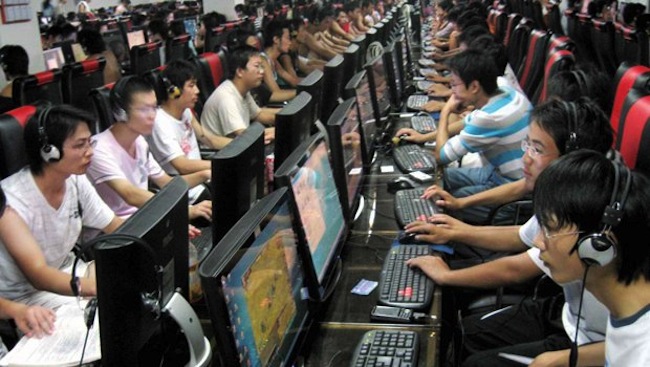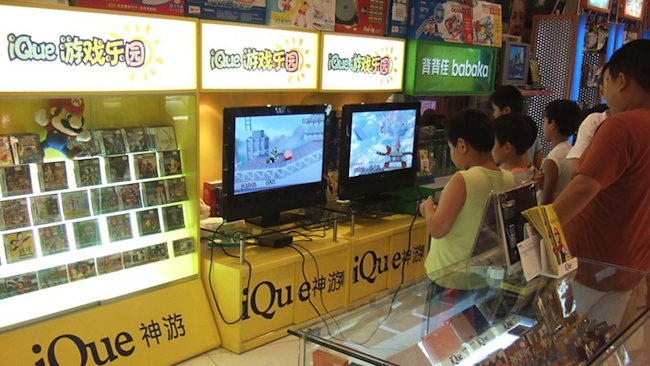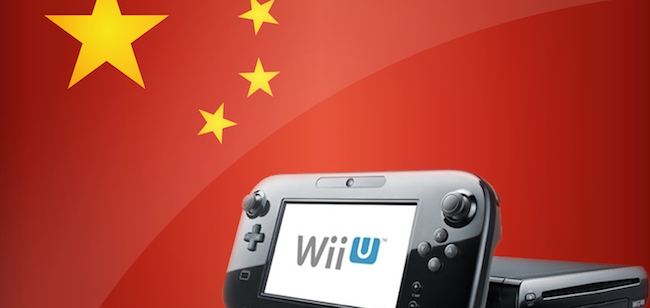
With the release of the PS4 and Xbox One, the Western World has been occupied in a debate over which system is technically superior, thus, perpetuating the longevity of the “Console Wars”. However, with all the focus on competition, it’s easy to overlook the fact that China may be receiving their first console in over a decade. In fact, many of our favourite games have been out of reach for the citizens of China due to a ban prohibiting foreign companies from manufacturing and retailing video game consoles which was introduced in June 2000.
Why was there a need for a ban in the first place? The concept of censorship in China isn’t a surprise to anyone, but on top of that, the Chinese government was concerned about the effect gaming had on the youth and adolescents of the country. They were afraid of children falling into video game addiction and the possible negative influences the medium had over their youth, and as a result, they outlawed the sale of consoles from foreign companies to “protect” China’s children, and yet, that couldn’t stop it all together; instead cultivating a strong PC gaming culture.

However, that’s not to say that consoles were completely discarded by the Chinese market. Instead, some companies decided to rework the structure of their gaming platforms and manufacturing in order to circumvent the strict guidelines imposed by the Chinese government. One of the most notable Chinese consoles is the iQue Player, which was released as a joint venture by Nintendo and a Chinese-American scientist by the name of Dr Wei Yen on 17 November 2003. It was a plug and play device based on the Nintendo 64 console; having a similar controller scheme, and playing some of the same games from the original console it was derived from. Basically, it was Nintendo’s attempt to prevent the piracy of their games as many Chinese gamers were turning to ROMS and emulators in order to play games that were unavailable to them. A strong “black market” industry also sprung up for those who just had to get their hands on a hot new console and retail games that they didn’t have access to.
With that said, there is hope that this will soon become a thing of the past as on the 6th of January, word officially emerged that China will be lifting the 13 year ban on video game consoles. Initial speculation about the removal of the ban occurred around September 2013 when the China (Shanghai) Pilot Free Trade Zone was launched, and there was a section of the regulation plans released that proposed “foreign-invested enterprises” would be “permitted” to manufacture and sell video game consoles from within the set out zone to be “sold to the domestic market”. The most recent amendments to the regulations did indeed make the removal of the ban official.

We can’t get too excited just yet, with the loosening of rules comes added precautions. Within the same article, it discusses that the consoles will be permitted for retail PENDING approval from China’s Ministry of Culture. Even though the ban is being lifted, everything that is made and aimed at the people of mainland China will still have to go through inspection and approval before it will be cleared for sales. What kind of requirements will the consoles and games have to meet in order to pass the ministry’s test of whether or not it’s suitable? What grounds are they making their decision on? How long will it take for games and consoles to get through the approval process? WHEN is this going to be implemented? Many questions come to mind, but at the moment there are no answers. And from the sounds of it, this ban relief may only be temporary, perhaps to test the waters and see how things progress. Will anything actually make it through the approval process before they reverse their decision?
On Thursday Nintendo’s stock on the Tokyo Stock Exchange surged by an amazing 11%, Sony also experienced a smaller increase of about 1.4% at the same time. It is a clear sign that investors are excited by the prospect of being able to get their products into a previously unreachable market (at least officially). One can only wonder whether it will pay off or if the ban will be reinstated before anything is passed through the inspection phase.

It’s undeniable that hope has been sparked among the masses as the internet buzzes with a lot of speculation. However, amongst the excitement, there is plenty of warranted hesitation and doubt. How does one know what to believe these days, especially when discussing a government that’s well known for its heavy censorship? Thankfully here in Australia the level of censorship is to a minor extent, and we don’t have to worry about the same problems that China needs to deal with. I’m sure that everyone who is affected by the new regulations will be wishing that the approval process will be quick and simple and that these new rules will be permanently in place, but all that can be done is to wait and see what the future holds for the Shanghai Free Trade Zone regulations.











